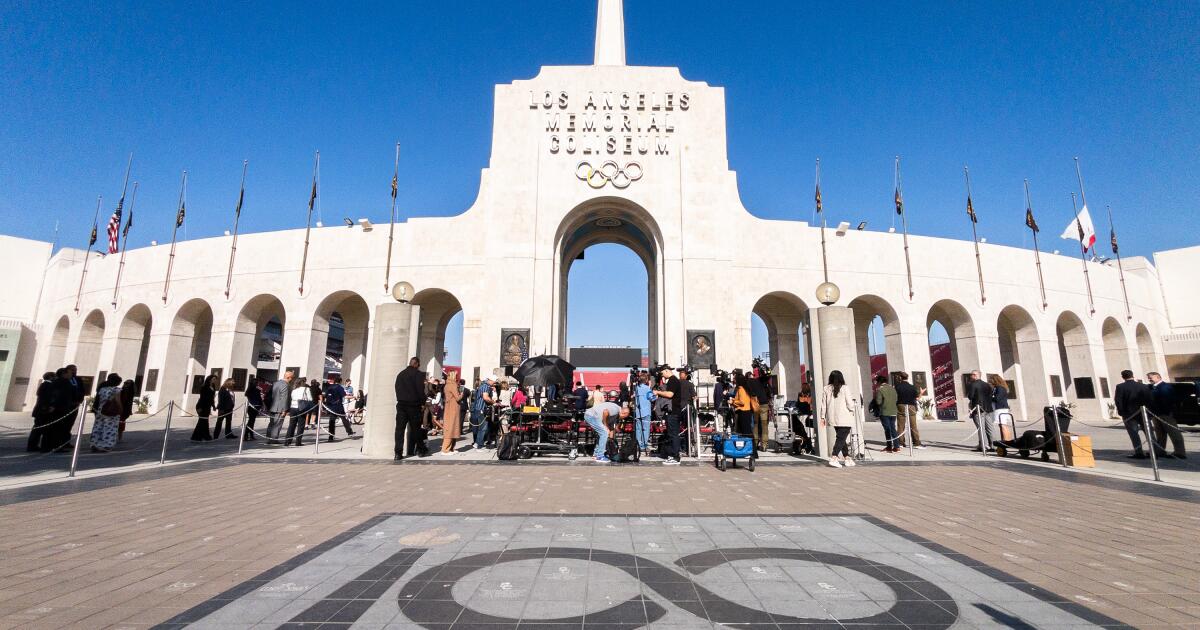Introduction to the 2028 Olympics
The 2028 Olympics in Los Angeles will mark a significant departure from tradition by allowing corporate sponsor names on venues, a first in Olympic history. This decision comes after an agreement between LA28 and the International Olympic Committee (IOC), signaling a new approach to advertising revenue for the Games.
Background on Olympic Advertising
Historically, the IOC has maintained a "clean venue policy," keeping venues free from advertising to limit corporate influence. While major sponsors have always been present at the Games, venues and fields of play have remained commercial-free. This policy has led to situations where well-known venues have had to adopt temporary, generic names during the Olympics.
The New Agreement
The agreement between LA28 and the IOC will enable venues used for the 2028 Olympics and Paralympics to retain their corporate sponsor names. This change is expected to ease logistical challenges and reduce costs by allowing existing signage to remain in place. LA28 chairman Casey Wasserman emphasized that this decision is not just about revenue but also about enhancing the experience and value for all parties involved.
Revenue and Sponsorship
The additional revenue from naming rights agreements will contribute to covering the costs of the privately funded Games, which have a projected budget of $7.1 billion. LA28 has already secured contracts for about 70% of its $2.5 billion domestic sponsorship goal and has added eight new corporate sponsors this year, surpassing the total from 2024. The momentum in securing sponsors is seen as meaningful and real, though organizers remain cautious and focused on meeting their targets.
Implementation and Details
For venues with existing sponsorship names, such as Crypto.com Arena or the Intuit Dome, the sponsors can become founding-level partners to retain their naming rights during the Games. Otherwise, venues will be renamed without a sponsor. The changes are already underway, with announcements that the Honda Center will retain its name for Olympic volleyball and the introduction of the Comcast Squash Center at Universal Studios for squash’s Olympic debut.
Broadcast and Signage
Broadcasters will now be able to refer to venues by their corporate sponsor names, providing a significant global stage for these brands. Signage outside existing venues will remain in place, and naming rights are available for the 19 temporary facilities, with first bidding opportunities going to members of The Olympic Partners (TOP) program. However, the field of play will remain free from visible sponsorships, maintaining a key aspect of the traditional "clean venue policy."
Challenges and Concerns
Despite the progress in planning and sponsorship, the 2028 Olympics face challenges, including concerns over safety, visas for international visitors, and logistical issues such as transportation updates and services like security and traffic control. LA28 has promised to cover all expenses related to the Games, but taxpayers could still face risks if the organization goes over budget.
Conclusion
The decision to allow venue naming rights at the 2028 Olympics marks a significant shift in how the Games are financed and presented. While it offers new revenue opportunities and logistical efficiencies, it also raises questions about the balance between commercial interests and the traditional values of the Olympics. As the Games approach, organizers will need to navigate these challenges to ensure a successful and memorable event for athletes, sponsors, and spectators alike.
FAQs
- Q: What is new about the 2028 Olympics in terms of advertising?
A: The 2028 Olympics will be the first to offer venue naming rights, allowing corporate sponsors to have their names on venues during the Games. - Q: Why has the IOC agreed to this change?
A: The IOC recognizes the market reality of venue naming rights in the U.S. and sees this as an opportunity to generate critical revenue for the Games while still maintaining the principles of the "clean venue policy" for the field of play. - Q: How will this change affect the financing of the Olympics?
A: The additional revenue from naming rights will help cover the costs of the privately funded Games, contributing to the $7.1 billion budget. - Q: Will all venues be open to naming rights?
A: Existing venues with sponsorship names can retain them if the sponsor becomes a founding-level partner. Naming rights are also available for the 19 temporary facilities. - Q: What challenges do the 2028 Olympics still face?
A: Despite progress, concerns include safety, visa issues for international visitors, and logistical challenges such as transportation and services.


